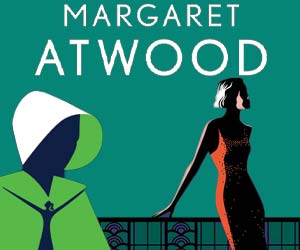The Penelopiad: The Myth of Penelope and Odysseus
Select Format
Select Condition 
Book Overview
Margaret Atwood returns with a shrewd, funny, and insightful retelling of the myth of Odysseus from the point of view of Penelope. Describing her own remarkable vision, the author writes in the foreword, "I've chosen to give the telling of the story to Penelope and to the twelve hanged maids. The maids form a chanting and singing Chorus, which focuses on two questions that must pose themselves after any close reading of the Odyssey: What led...
Customer Reviews
One of my favorite authors
Can't read it
A book to savor
Delightfully inventive
A wise, witty, sharply pointed retelling of mythology.
A fascinating and sensitive retelling of Homer's epic from Penelope's perspective
Excellent
The Penelopiad Mentions in Our Blog

Margaret Atwood is 81 years old today! The renowned Canadian author has been publishing poetry, novels, nonfiction, children’s books, and more since 1961, but her star just keeps on rising. Known largely for books like The Handmaid’s Tale, you may be surprised to learn that speculative fiction actually represents a small fraction of the versatile author’s work.

Getting young people to read old books can be challenging. One successful approach we’ve come across is to pair the original with a modern take on the story. Here we feature ten classic books matched with fun, updated retellings.






